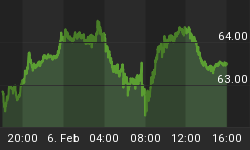It took a few decades longer than it should have, but the world has finally figured out that leveraged speculation is not the path to lasting prosperity. Investment banks and hedge funds are dying, and the concepts upon which they were built--derivatives, gullible pension funds, sycophantic financial media--are being shoveled into the landfill of history.
Now the survivors have to come up with ways to feed, clothe, house, and entertain seven billion people without the help of mortgage-backed bonds, CDOs, and black box trading models. The answer (not the correct answer but the inevitable one) is pretty obvious: The governments of the world will run the printing presses in an attempt to stave off Depression until some miracle happens to put us on a sustainable track, or at least until the current crop of leaders retires. This won't work in the long run; instead it will simply destroy today's paper currencies. But in the meantime a lot of newly-created dollars, euros, and yen will be flowing somewhere, financing growth and pumping up share prices. The question is, which shares? In a prescient March 2008 Harper's article, iTulip's Eric Janszen cast his vote as follows:
"There are a number of plausible candidates for the next bubble, but only a few meet all the criteria. Health care must expand to meet the needs of the aging baby boomers, but there is as yet no enabling government legislation to make way for a health-care bubble; the same holds true of the pharmaceutical industry, which could hyperinflate only if the Food and Drug Administration was gutted of its power. A second technology boom - under the rubric 'Web 2.0'- is based on improvements to existing technology rather than any new discovery. The capital intensive biotechnology industry will not inflate, as it requires too much specialized intelligence. There is one industry that fits the bill: alternative energy."
Yep. With the election of Barak Obama, the U.S. will almost certainly come to the above conclusion, because it's a double winner: A massive clean-tech public works program will simultaneously create jobs and restructure the energy economy along sustainable lines. So in coming years look for a varied and relentless parade of subsidies, tax breaks, public/private partnerships, and mandates designed to bolt solar panels onto rooftops, build power lines connecting wind farms to cities, and replace internal combustion engines with batteries.
Combine this coming tsunami of public cash with the fact that plunging oil prices and the general market decline have crushed even the best clean tech stocks, and the result is an interesting, maybe unique situation. The clean tech crash was a bloodbath for the hot money that piled into solar and wind in the expectation of $200 oil. But it's a once-in-a-generation opportunity for those who kept their powder dry.
To get you started, here's a list of clean tech mutual funds and ETFs, all of which are down in the past year. They generally own the strongest companies in their sectors, and offer diversification that is crucial, since there's no telling where the final bottom will turn out be for any individual stock.
Claymore/MAC Global Solar Energy (TAN)
First Trust ISE Global Wind Energy Index Fund (FAN)
Guinness Atkinson Alternative E (GAAEX)
New Alternatives Fund (NALFX)
PowerShares Cleantech (PZD)
PowerShares WilderHill Clean Energy (PBW)
Power Shares Wind Global Energy Portfolio (PWND)
Winslow Green Growth (WGGFX)
Winslow Green Solutions (WGSLX)
Market Vectors Solar Energy ETF (KWT)















